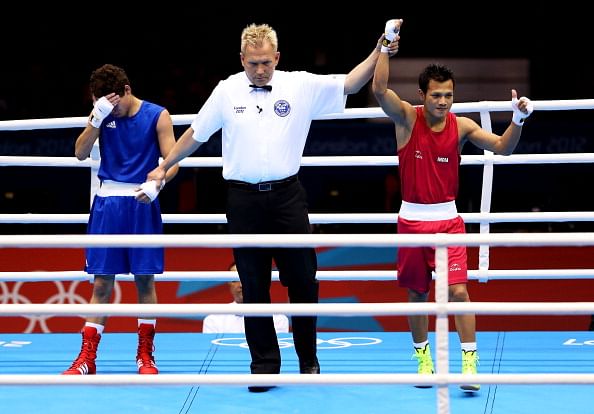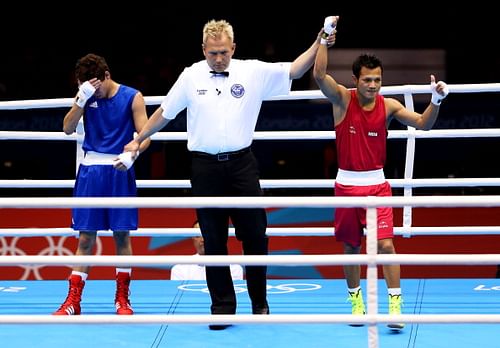
India at London 2012: Difference in expectations – it shows in the emotions

On a day when Michael Phelps confirmed his place in the annals of Olympic greatness by winning his 19th medal overall (of which 15 are gold), the most by any individual Olympian, India got a reality check, a day after the nation joyously celebrated Gagan Narang’s bronze. It was a day of extremes for the Indian contingent, with a few spectacular performances contrasted with several mediocre and poor ones.
Bhupathi and Bopanna, after going to great lengths to assure their partnership at the Olympics, surrendered meekly to the French pairing of Gasquet and Benneteau, who ironically do not play doubles regularly. This should not only be a humbling lesson for the pair, but also for AITA, who must take decisions for advancing the game in India, rather than to stroke the egos of a few individuals. The Indian archers had a forgetful day at London 2012, with all those in action failing to make any medal rounds. This puts immense pressure on the lone remaining archer Deepika Kumari – only time will tell if she can make it to the other side with a medal. Even if she does, the poor performance of the archery contingent as a whole must not be swept under the rug.
Credit must be given though to shuttler P. Kashyap, ranked 10 places above Vietnamese Tien Minh Nguyen, who was in great form, beating him comfortably in straight sets. But the standout performance came from boxer Devendro Singh in the 49Kg category. Devendro’s swashbuckling performance lasted less than two and a half minutes, when the referee was forced to stop the tie and award it to Devendro, after his opponent felt dizzy from the forceful blows. Devendro’s performance was in contrast to most of the other Indian Olympians over the first few days, as he managed an explosive start to his campaign. But it’s important for these promising athletes to maintain their momentum and intensity, as a great performance in the pre-quarters or the round of 32 will be soon forgotten unless they manage to medal-up.
The most remarkable moments on Day 4 of the Olympics were the reactions of some of the athletes, who despite winning a medal, were far from being satisfied. As the women’s Team Artistic Gymnastic event came to a finish, it was evident that Team USA would win gold, whereas Team Russia would have to settle for silver. But their reaction would suggest that they might have finished outside the medal tally – each of the five Russian gymnasts had tears rolling down their cheeks – and these were not tears of joy but of anguish. Similarly, in the men’s 200M butterfly, Phelps narrowly missed out on gold, and his displeasure was there for all to see. Even though Phelps had won silver, he threw his cap in disgust after the race, suggesting nothing less than gold would satisfy him. Even the American commentator sounded disappointed.
Compare this to Gagan Narang’s reaction to winning bronze. Further, compare this to the reaction of elation and joy from Indian fans, media, politicians and sports administrators after his bronze triumph. I do not blame Narang or any other Indian Olympian for such a reaction, because only they know what they have had to endure to reach such a position. But as a country, we really do need to react appropriately to such ‘medal moments’. Why do we set such low targets and get ecstatic with achieving them? Is it mediocrity that we want the next generation of Indian Olympians to strive for? Or is it greatness?
By Suheil Tandon
(The author is Co-founder & Partner, Pro4Sport Solutions, a high-performance coaching firm that trains young athletes in the sport of Basketball, Cricket, Football and Table Tennis)